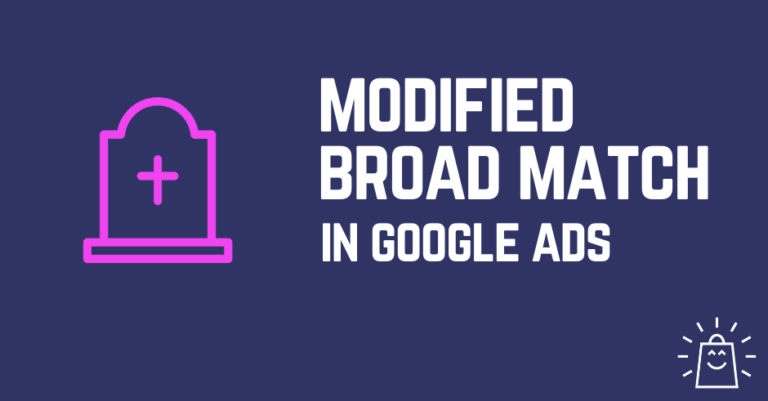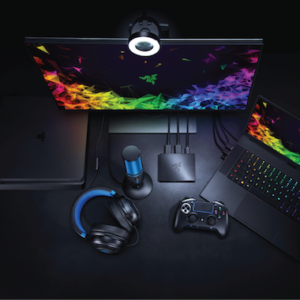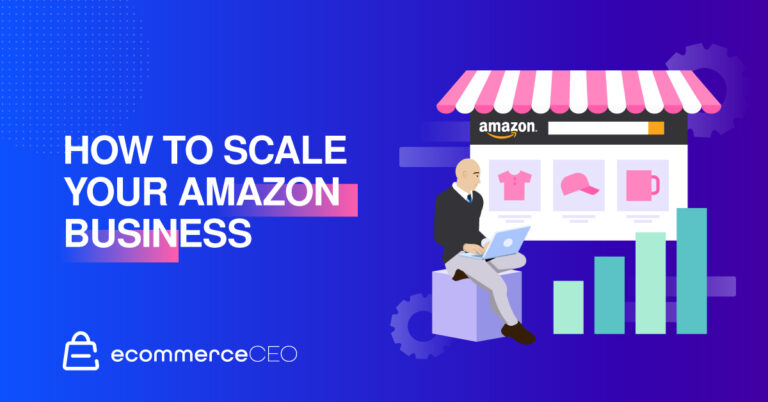Personalized products include anything that can be tailored to a specific customer’s needs and expectations — from office accessories and furniture, to clothing and shoes, to makeup, vitamins, and more.
These products can evoke emotions such as pride, thoughtfulness, a sense of identity, and joy. Because they’re custom-made, shoppers can connect with them on a deeper level than items found on any old shelf.
According to McKinsey & Company, “led by Gen Z and millennials, consumers across generations are not only eager for more personalized products but also willing to pay a premium for products that highlight their individuality.”
As an increasing number of today’s consumers seek personalized products, more brands and retailers are updating their product offerings accordingly — and many have seen huge success.
McKinsey & Company’s “Next in Personalization 2021 Report” highlighted that “across U.S. industries, shifting to top-quartile performance in personalization would generate over $1 trillion in value. Players who are leaders in personalization achieve outcomes by tailoring offerings and outreach to the right individual at the right moment with the right experiences.”
Let’s dive into three brands successfully offering personalized products — and tips you can apply to your business:
1. Care/of’s Customized Vitamins
Care/of is a direct-to-consumer (DTC) brand selling personalized vitamin packs. The brand aims to help consumers find the vitamins and supplements most likely to support their unique health goals and needs.
To that end, Care/of invites users to take an online health and lifestyle quiz before signing up for their subscription service.
For the quiz, you’re asked 48 short questions including your age, email address, historical usage of vitamins and supplements, health conditions, and more. After completing it, you receive product recommendations that best suit your needs.
Image Source: Care/of
Once you’ve started a plan, your daily Care/of curated vitamins and supplements are sealed into individual packs and shipped to you monthly. Care/of also uses colorful and quotable packaging to engage customers and encourage excitement around their health and wellness routine.
Since launching in 2016, Care/of has had more than 5 million people take its core online quiz. Sales increased 200% year over year in 2019, according to Glossy. And in 2020, Bayer bought a 70% stake in Care/of, which valued the brand at $225 million, as reported by Bloomberg.
Key Takeaway: Understand Your Customers
According to Forrester research, 64% of global consumers place high or critical priority on relevant, personalized savings and offers when deciding from whom to purchase.
Having up-to-date, accurate data is the foundation of a successful personalized experience. You need to know your customers to give them what they want.
In the case of Care/of, the company created a quiz to collect customer data and adjust product offerings accordingly. You can mimic this tactic or use surveys and other channels for data collection.
2. Skin Inc’s Personalized Skincare
Founded in Singapore in 2008, Skin Inc infuses technology from Japan in its savvy approach to tailor-made skincare. Their mission is to “formulat[e] clinically-proven customized products that deliver superior noticeable results,” reports Prestige.
The Skin Inc experience starts with a science-based Skin ID Quiz, powered by a proprietary algorithm relying upon a database of more than 1 million skin profiles. The Skin Inc’s scientific team then analyzes a customer’s answers and recommends the best combination of active ingredients to help the customer address their unique skin concerns.
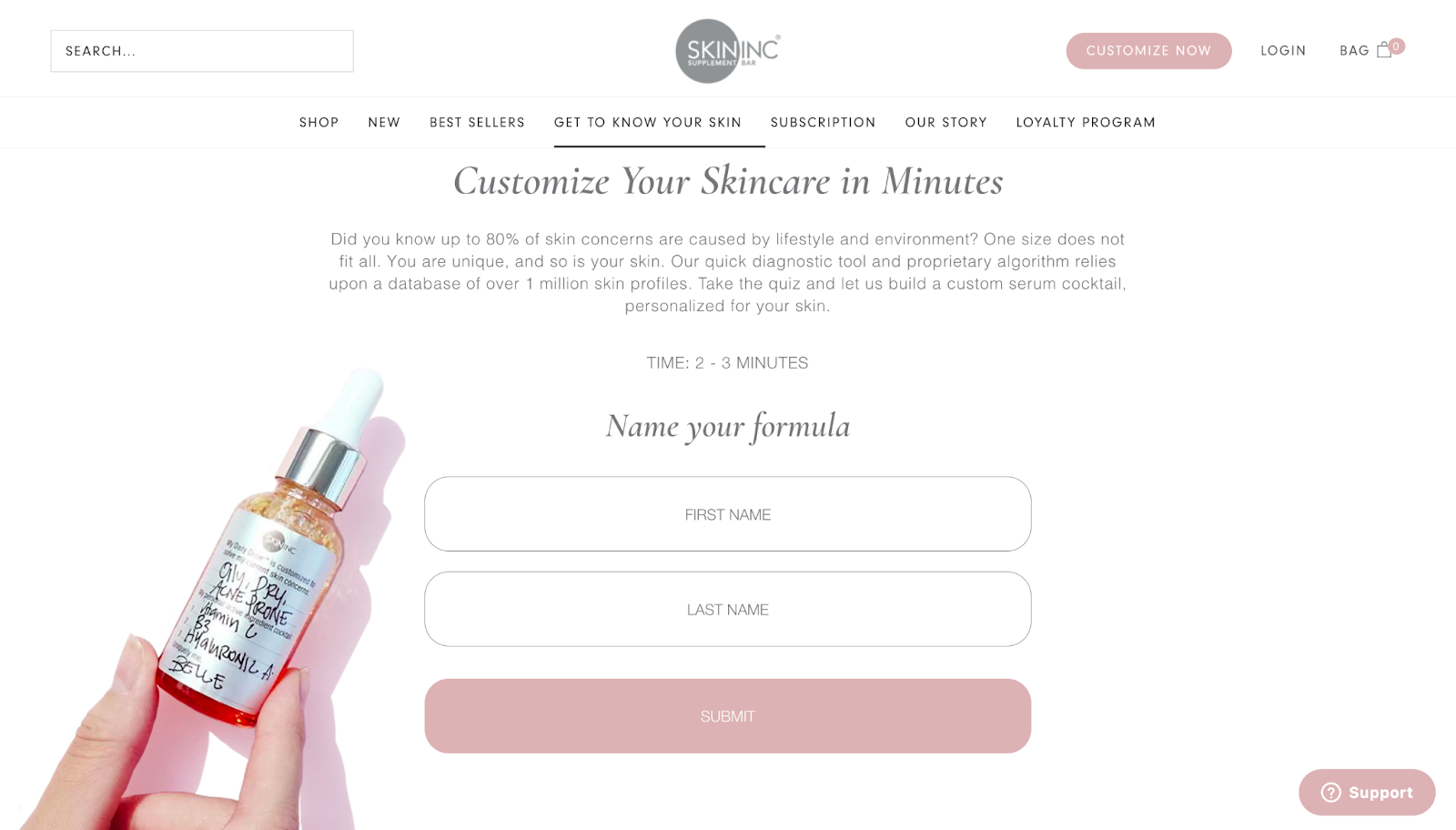
Sabrina Tan, the founder of Skin Inc, shared with CNA Lifestyle that their scientific team includes notable experts like “Dr. Shekhar Mitra, who was previously the senior vice president of research and development at Procter & Gamble, and Dr. Donald L Bisset, author of over 60 published technical manuscripts and the inventor of over 30 U.S. patents with 32 years of skincare research experience at Procter & Gamble.” These relationships help Skin Inc’s personalized products gain trust with customers.
Thanks to continuous innovation and a deep understanding of customers’ needs, Skin Inc recorded a 400% growth year-on-year during COVID-19, reports CNA Lifestyle.
The brand currently serves customers in more than 78 cities in Asia, Europe, and the U.S. They also have more than 200 retail distribution points across their concept stores, Sephora and Nordstrom outlets, and other online partners.
Key Takeaway: Establish Expertise
It’s one thing to understand a customer’s needs; giving them a solution that works for their unique concerns is another. Skin Inc clearly understands this concept: By partnering with industry experts, they can ensure they walk the talk.
You need to demonstrate your expertise to build trust with customers. This is particularly crucial when you sell cosmetics and health-related products and plan to offer personalized items.
3. Shoenvious’ Personalized Shoes
Shoenvious is a luxury footwear company for women. The brand’s mission is to “chang[e] the way women shop for shoes by giving [them] the freedom to create a personalized pair that’s tailored to [their] needs — at fair prices.”
Customers can use Shoenvious’ online 3D shoe designer to personalize and order shoes from the brand’s online store. They can choose from 100 colors and materials and more than 300 styles across six different silhouettes and heel heights.
Shoenvious also provides a 3D product builder app where shoppers can customize almost every inch of the shoe, add an inscription, and view all the edits in 3D.
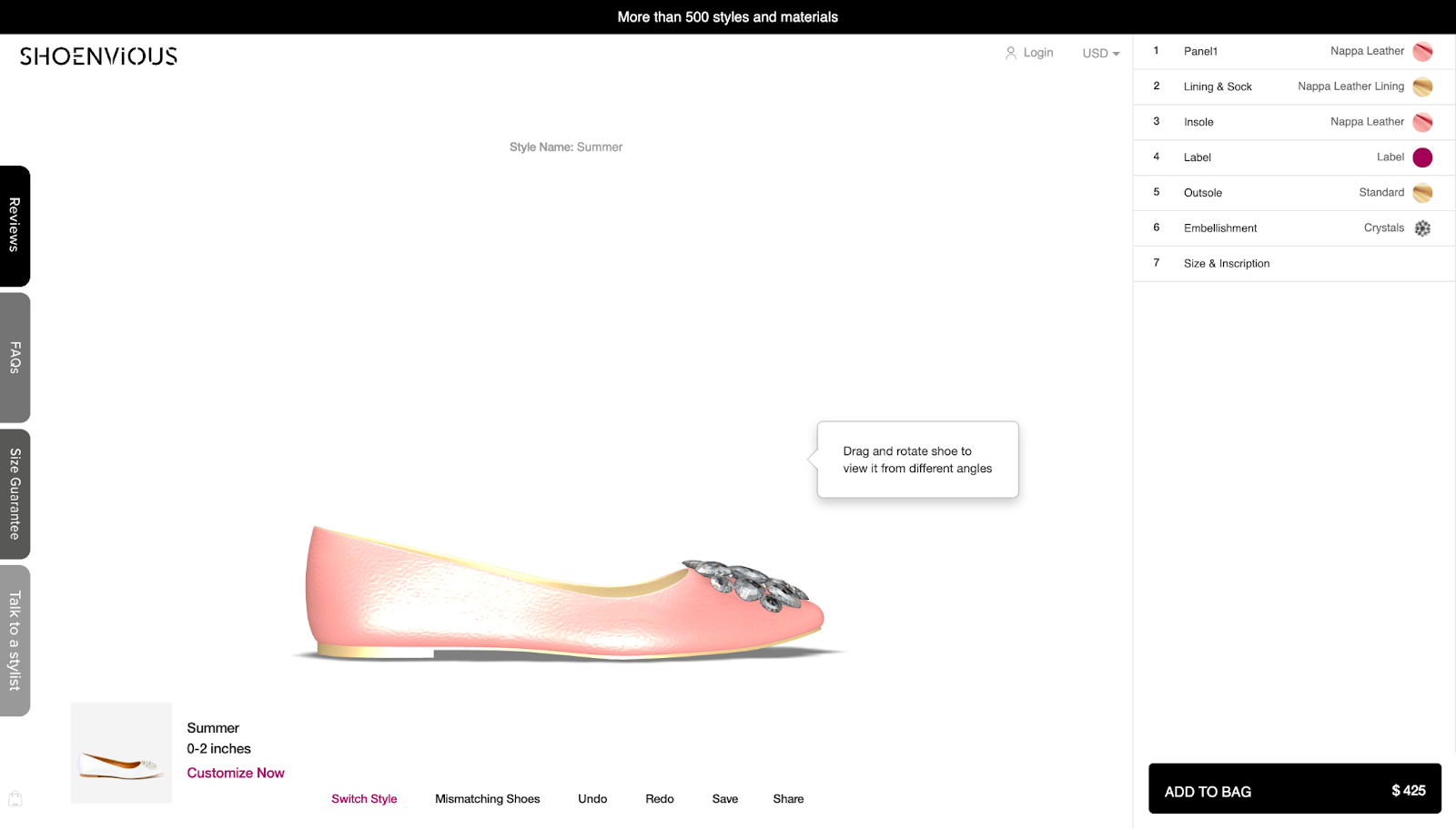
Image Source: Shoenvious
Today, Shoenvious is available in more than 80 countries. During the COVID-19 pandemic, the brand also shifted its marketing efforts toward personalized bridal shoes. This shift boosted traffic by 30% across its site and yielded higher sign-ups and conversion rates, according to Sau Noddings, Shoenvious’ co-founder, in an interview for TheIndustry.Fashion.
Key Takeaway: Enable Enhanced Content and Interactivity
Using a product personalization tool is a great way to provide customers with interactive shopping experiences. Shoenvious uses a 3D product configurator to present products as a 3D model, allowing customers to customize them in real-time.
Assess how you can take advantage of technology to enable personalization throughout your DTC website. And consider adding a video to your product page to guide customers through how they can customize products.
Start Offering Personalized Products Today
Today’s customers are looking for products that meet their needs and expectations while also complementing their personalities and lifestyles.
As a brand or retailer, you have a huge opportunity to win more customers and strengthen loyalty by offering personalized products. Study the successes of the three brands above and apply their tactics in ways that make sense for your business.
Ready to start building high-converting product pages for your personalized products? Download Salsify’s “Complete Product Page Toolkit.”



